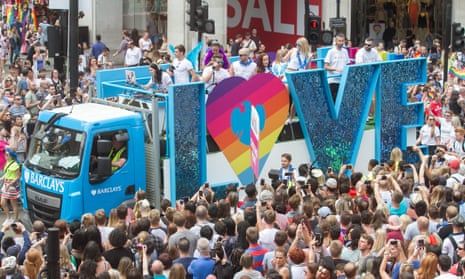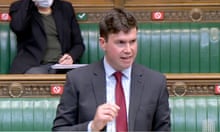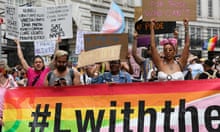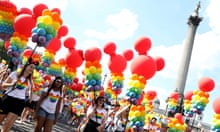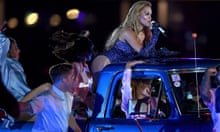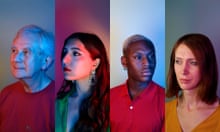Throughout June – London Pride month – corporations around the city will boast of their allegiance to the LGBT community. Walk into a Wagamama, and rainbow flags are intended to show solidarity with LGBT citizens. Barclays, Pride in London’s main sponsor, declares its support in the guise of a temporary rainbow filter on its website logo. What udon noodles and contactless payment have ever done to end homophobia will forever remain a mystery.
On the surface, London Pride celebrates the city as a place of LGBT equality. But this external display of inclusion belies a core that is routed in exclusion. Once a political protest, Pride has been commodified into a business arena cashing in on “the pink pound”. It’s hard to think of a major corporation that doesn’t have a float at the parade, with everyone from PlayStation to Costa broadcasting their dedication to LGBT customers. The relationship between gay equality and good business even dominates Pride in London’s blog forum.
As such, Pride feels much more like an ode to capitalism than a fight for actual civil rights. Pride’s corporative makeover contributes to an image that I find politically troubling – that neoliberal ideology is the generator of LGBT rights. As a gay person of Muslim heritage, the inescapable secularism of Pride makes me anxious. When western capitalism is painted as a haven for gay rights, I experience a friction between the Muslim and queer parts of my identity. This is particularly sensitive in a context where, for instance, a large number of gay men in Paris voted for Marine Le Pen in 2017, persuaded by her rhetoric that Islam was a threat to civic liberties.
And last year’s Pride saw its fair share of Islamophobia, with groups holding placards reading “Fuck Islam”, with some specifically damning the East London local mosque. And while the treatment of LGBT people remains dire in many Muslim countries, this militant secularism mutes the fact that many queer Muslims also hope to march at Pride, and that a majority of Muslims condemn homophobia (the East London mosque notably campaigned against homophobic hate stickers in the local borough, Tower Hamlets).
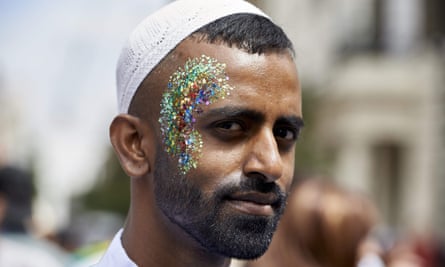
Other queer Muslims share reservations around Pride. A former chair of Imaan, the UK’s leading LGBT Muslim charity, discussed with me the inaccessibility of Pride for queer Muslims: “It was difficult to organise around Pride. Having a presence in the parade is expensive, and groups like ours were underfunded, and struggled to be present, let alone have a presence that was at the level of richer groups.”
With Pride’s corporate redesign comes some exclusionary pragmatics. Despite organisers stipulating that marchers can’t be drunk, there is a lot of alcohol at the parade, and this can be difficult for many Muslims who don’t drink, or for those who are fasting during the month. The enormous media presence also makes it more difficult for queer minorities who don’t have the privilege of being safely out to their families. As a reaction against Pride’s increasing inaccessibility, queer people of colour and faith are creating alternative events. Make-up artist Umber Ghauri, who identifies as Muslim and queer, helped set up Queer Picnic, which offers an alternative space to Pride that is safer for people of colour and faith. Umber tells me how the secular nature of “mainstream Pride” fragments their sense of self, “forcing you to chop off your Muslim identity in order to celebrate your LGBT identity”. Queer Picnic, however, is an inclusive gathering without any media intrusion, offering predominantly sober spaces, giving intersectional queer identities the chance “to celebrate all of who we are”.
Pride’s social and political drive is becoming hollowed out, and we must resist it becoming a playground for corporations we should be holding to account. Companies such as Topshop are congratulated for being bastions of equality when they adorn their summer products with rainbow flags and introduce gender-neutral changing rooms. But let’s not forget the darker truths, such as Topshop’s removal of trans performance artist Travis Alabanza from a changing room, which subsequently led to weeks of transphobic press.
So for this month, and for every other month, let’s focus away from the corporate intersections with LGBT citizens. Instead, let’s pull our attention to how LGBT rights intersect with the struggles of other minorities, so that all queer people, of all faiths and races – not just those with the most western privilege – have the chance to feel proud.
